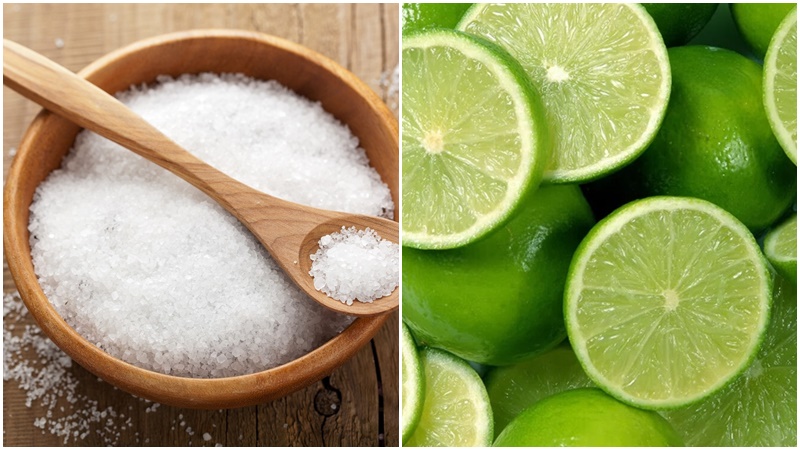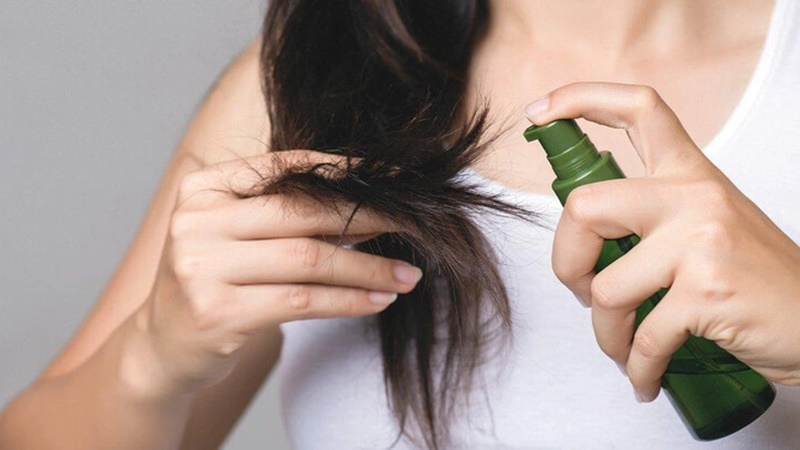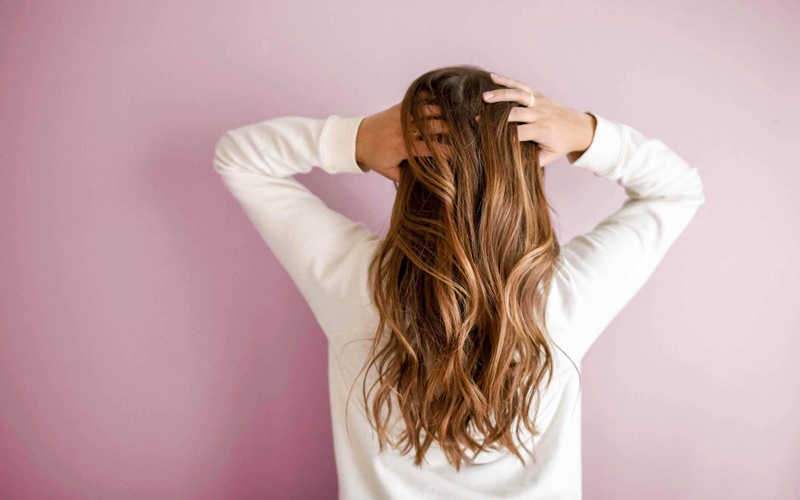Dandruff can be a frustrating and itchy issue. However, you can effectively treat it using lemon. Let’s explore the details in today’s article!
1 Is lemon effective in treating dandruff?
 Can lemon treat dandruff effectively?
Can lemon treat dandruff effectively?
Dandruff can be treated with medical advice and guidance from a doctor. However, many people still opt for natural remedies, including using lemon. Treating dandruff with lemon can be highly beneficial due to its unique properties:
-
Lemons contain organic acids and high levels of Vitamin C, effective in eliminating fungi and improving scalp health.
-
Notably, the Vitamin B content in lemons helps prevent the risk of scalp fungal infections.
-
Trace minerals such as calcium, potassium, and magnesium in lemons also protect and enhance the scalp’s resistance to fungi.
-
Additionally, lemons contain diosmin and erio citric, which are effective in combating scalp fungi.
2 Four effective ways to treat dandruff with lemon
Treating dandruff with salt and lemon
 Treating dandruff with salt and lemon
Treating dandruff with salt and lemon
Combining salt and lemon creates a powerful remedy to combat dandruff quickly and effectively. Both ingredients possess strong antibacterial and anti-inflammatory properties, so using them together improves your scalp’s condition and prevents recurrence.
Instructions for treating dandruff with salt and lemon:
-
Extract the juice from two fresh lemons.
-
Grind the salt into a fine powder and mix it with the lemon juice to form a paste.
-
Wash your hair with warm water to open up the hair follicles and remove excess oil from the scalp.
-
Gently apply the paste to your scalp and hair.
-
Finally, leave it on for about 15 minutes, then rinse with clean water.
Treating dandruff with lemon and olive oil
 Treating dandruff with lemon and olive oil
Treating dandruff with lemon and olive oil
Lemon and olive oil can improve your scalp’s condition and heal damage caused by fungal infections. Notably, olive oil’s essence will make your hair smoother and shinier.
Instructions for treating dandruff with lemon and olive oil:
-
Extract the juice from two lemons.
-
Add a small amount of olive oil to the lemon juice and mix well.
-
Wash your hair with warm water to open up the hair follicles and remove excess oil.
-
Apply the lemon and olive oil mixture to your hair.
-
Rinse thoroughly with water.
Treating dandruff with fresh lemon
 Treating dandruff with fresh lemon
Treating dandruff with fresh lemon
Using fresh lemon to wash your hair can help destroy the environment where harmful fungi thrive, effectively controlling and improving your dandruff condition.
Instructions for treating dandruff with fresh lemon:
-
Extract the juice from a fresh lemon and dilute it with cool water to reduce the acidity.
-
Wash your hair with warm water, then apply the lemon mixture to your scalp and gently massage.
-
Leave it on for about 10-15 minutes, then rinse with clean water.
Treating dandruff with lemon and coconut oil
 Treating dandruff with lemon and coconut oil
Treating dandruff with lemon and coconut oil
Coconut oil is rich in beneficial actives and vitamins for the scalp, such as lauric acid, Vitamin E, iron, and potassium. Combining coconut oil with lemon creates a superior formula to eliminate fungi and prevent bacterial growth on the scalp.
Instructions for treating dandruff with lemon and coconut oil:
-
Extract lemon juice and mix it with coconut oil in a 1:1 ratio.
-
Wash your hair with warm water, then apply the mixture to your scalp.
-
Gently massage for about 5 minutes.
-
Leave it on for about 15 minutes, then wash your hair with a mild shampoo to prevent oiliness.
3 Precautions when treating dandruff with lemon
 Precautions when using lemon to treat dandruff
Precautions when using lemon to treat dandruff
When using lemon to treat dandruff, keep the following in mind:
-
Due to its high acidity, lemon may irritate your scalp. Before applying it to your scalp, perform a patch test on a small area of your skin to check for any reactions.
-
If you experience increased itching or worsening of your dandruff condition after using lemon, discontinue use and seek medical advice.
4 Measures to reduce dandruff
 Necessary measures to reduce dandruff
Necessary measures to reduce dandruff
Proper and regular scalp care can effectively improve your dandruff condition. You can implement the following measures to reduce and manage your dandruff:
-
Avoid sleeping or wearing a helmet when your hair is wet.
-
Do not scratch or rub your scalp vigorously to prevent damage.
-
Avoid using harsh, abrasive shampoos.
-
Keep your hair dry and airy.
-
Do not use any anti-dandruff products or medications without consulting a doctor.
This article provides a comprehensive guide to treating dandruff with lemon. If you find it helpful, please share it with your friends and family for their reference!
Source: hellobacsi.com
– Mix equal parts of lemon juice and water, apply the mixture to the scalp, and massage gently. Leave it on for 15-20 minutes, then rinse with mild shampoo.
– Combine lemon juice with coconut oil or olive oil, apply it to the scalp, and leave it on for 30 minutes before rinsing.
– Create a hair mask by mixing lemon juice with yogurt or honey, apply it to the scalp, and leave it on for 20-30 minutes before washing your hair.
– Add a few drops of lemon essential oil to your regular shampoo to create an anti-dandruff shampoo.



































